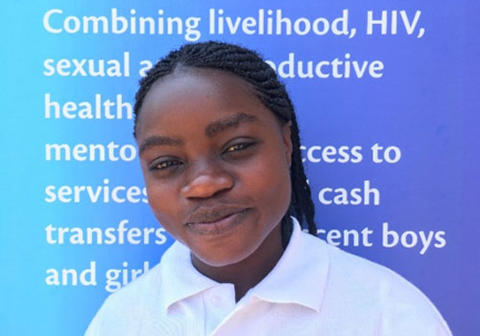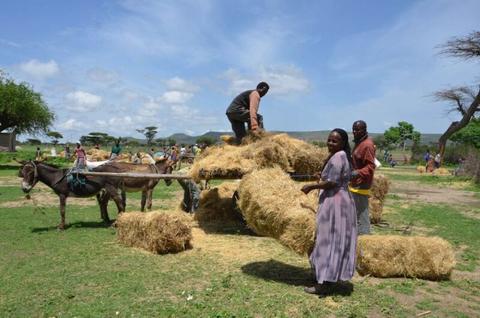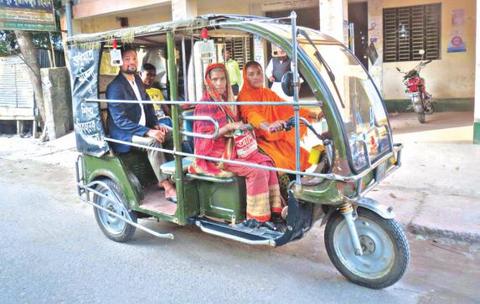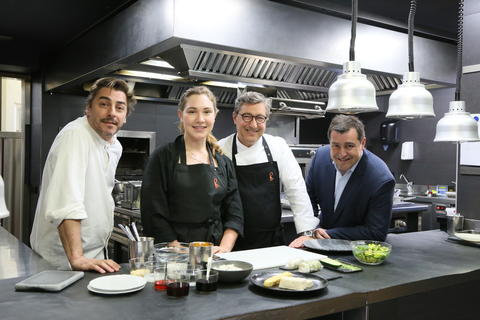October 22, 2015
New shop in Jenin will promote women’s businesses
Jenin, 25 October 2015.
The SDG-F Joint Programme in the occupied Palestinian territory, through FAO, supported local partners in the West Bank city of Jenin to launch a business shop for women’s agricultural cooperative products, known locally as ‘Beituti’. The shop showcases the UN partnerships with the Palestinian government as well as the private sector and civil society.
As the shop opened to the public, the United Nations Resident Coordinator for the occupied Palestinian Territories, Robert Piper was on hand to speak at the launch ceremony alongside FAO’s Head of Office for the West Bank and Gaza Strip, Ciro Fiorillo and UN Women’s Head of Programmes in the occupied Palestinian Territory, Inas Margieh. The Palestinian government was represented by the Governor of Jenin, Major General Ibrahem Ramadan, while multiple Palestinian civil society and private sector partners were also present to express their joint support for the continued success of the project as a whole and the Beituti shop in particular.
Through FAO, the SDG-F is currently supporting two such shops – the second is located just outside the southern West Bank city of Hebron. In both cases the programme is working with local, women-owned businesses to support their management of the shops, facilitating needed trainings through local partner Economic and Social Development Center of Palestine (ESDC), providing financial and technical assistance for start-ups costs and linking the business shops with women’s cooperatives and associations.
Bringing together the products of 15 women’s cooperatives and associations from across the West Bank in a single-point of sale open to the public, the business shop seeks to improve the market access of women and formalise their participation in the agriculture sector of the economy, improving their terms of sale and trade. More than 20 percent of the female Palestinian labour force is engaged in agriculture; however limited opportunities for engagement in the processing of raw agriculture products into value-added goods have often been limited for women, meaning their income from agricultural activities has been modest.
Capacity building trainings and technical assistance ensure that the women’s entrepreneurial skills and production standards are competitive on the local market, and the women entrepreneurs participating in this project will also soon benefit from the expertise of UN agencies involved in the programme. As a joint venture between FAO, UN Women and ITC, this SDG-F project aims to leverage the complementary comparative advantages of these UN agencies to promote women’s economic empowerment by supporting women-owned micro, small and medium enterprises (MSMEs) and cooperatives as well as Palestinian institutions and the private sector to establish fair policies and an accountable, transparent operational environment. While UN Women is in the process of launch a ‘One-Stop-Shop’ service centre where female entrepreneurs can seek support for planning, managing and sustaining their business ventures, ITC is laying the groundwork to improve the penetration of Palestinian products in foreign markets.
Background:
The SDG-F Joint Programme, “Creating One-Stop Shop for Sustainable Businesses,” supports Palestinian women-owned businesses, both existing enterprises and new entrants to the market, to enable them to increase their incomes and become self-sustaining. Based on an operational framework that favours women’s economic empowerment, the programme partners with Palestinian women-owned Micro, Small, and Medium Enterprises and cooperatives, institutions and the private sector to establish fair policies and accountable institutions, a one-stop-shop for long-term support to women’s businesses, environmental sustainability and inclusive and sustainable business practices to strengthen competiveness and sustainability of women-owned businesses, and ultimately increase decent jobs opportunities, secure livelihoods, and promote gender equality.
— Michelle Gyeney, Reporting and Communications Officer, Food and Agriculture Organization of the UN (FAO), West Bank and Gaza Strip






